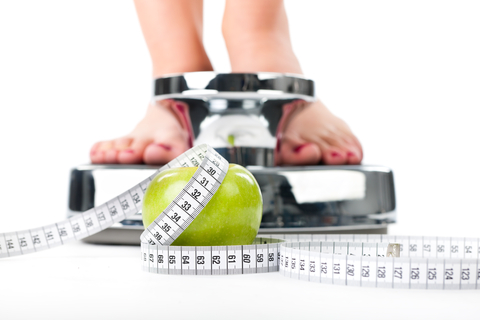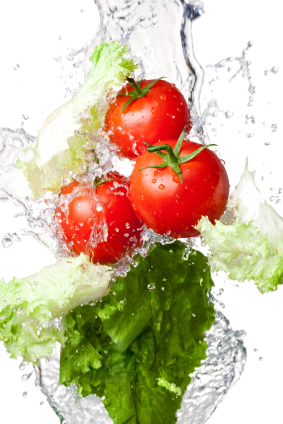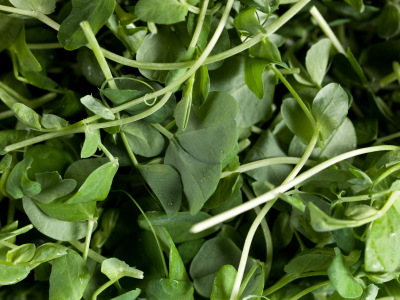In the mood…music and lighting can impact your weight
Lately, I’ve been focusing on diet, exercise and weight a lot of Flashfree, mostly because women consistently talk about the changes that they are trying to make to eat more healthy foods, incorporate regular exercise into their busy schedules and pay closer attention to the more granular details of their lives, like stress and schedules. So, I was truly intrigued when I ran across a study in Psychological Reports discussing how music and lighting can also impact both how much we enjoy our food but also, how much we eat during a meal.
Although this research focuses on fast food restaurants, I believe that it could easily be extrapolated to the home setting or influence our choices of setting when we eat out. When the researchers did a partial makeover on a local Hardees, adding softer lighting and less jarring music to half the restaurant, they found that patrons who ate in the ‘chill section actually lingered longer and consumed roughly 18% less of what they ordered. Moreover, they rated the food more enjoyable.
When was the last time you sat down for a proper meal, turned off the cell phone and email, dimmed the lights and put on some relaxing music? I was fortunate to do so over the weekend with a good friend and it was just what the doctor ordered. I wasn’t paying too much attention to how much I was eating but rather, that it was such a nice to treat to simply hang out and talk for hours.
Perhaps it’s time to change the focus towards atmosphere. It may make a world of difference.
Read MoreWednesday Bubble: Menopause & Long-Term Weight Loss – Is It Possible?
When it comes to losing and keeping weight off, experts say to keep your eyes on the prize. In other words, long-term goals and not short-term gains should be the focus.In fact, a study that will appear in the September issue of Journal of the Academy of Nutrition and Dietetics suggest that caloric intake, while shown to be beneficial for achieving immediate weight loss may be difficult to sustain in the long-term, especially among menopausal women. In an accompanying press release, lead study investigator Dr. Bethany Barone Gibbs explains: “Not only does motivation decrease after you start losing weight, [but] there are physiological changes, including decreased metabolic rate.” These changes, she says, are accompanied by increases in appetite-related hormones, adding “combined with natural energy expenditure decline in women following menopause, it is extremely difficult for older women to lose weight and maintain weight loss.”
Fortunately, study findings do emphasize a critical strategy: what you eat is extremely important.
The researchers came to this conclusion after studying eating behaviors in over 500 postmenopausal women. Over a period of two years, half the women met regularly with nutritionists, exercise physiologists and psychologists, and decreased the amount of total, saturated and trans fats that they ate, along with cholesterol from meat, dairy, fats, oils, baked goods and snacks. Conversely, they increased their intake of of foods rich in soluble fiber, fruits, vegetables, whole grains and sources of plant stanols/sterols (almonds, brussel sprouts, wheat germ/bran, peanuts, olive oil – all of which modulate cholesterol) and omega-3s. They also slowly incorporated physical activity into their lives until they reached set goals of 150 to 240 minutes weekly of moderate intensity physical activity and strength training. The other half of the women were offered 2 to 4 yearly seminars on general women’s health issues, such as smoking cessation or the benefits of regular physical activity but not weight loss. The entire group of women also had their eating habits tracked over the study period.
On average, women who changed their eating habits lost about 17 pounds over six months. These changes, which included lowered intake of desserts, sugar-sweetened beverages and fried foods, increased fish consumption and less restaurant meals were significantly associated with weight loss. After four years, this held true and continuing to eat fewer desserts and fried foods and cutting out sugary drinks proved to be beneficial. However, it also appeared that that eating more fruits and vegetables and decreasing intake of meat, cheese and sugar-sweetened beverages were additional factors in the women who were able to maintain their weight loss.
The overall message is clear: as we age, tried and true strategies, i.e. lowering caloric intake are important. But equally important in the long-term are more fruits and veggies and less meat and cheese.
Change and sustain. This doesn’t mean that you should sacrifice your cravings 100 percent. But you what you see now may not be what you get later if you are not mindful of what you’re putting into your body. Time to change your outlook? You bet!
Read More
Diet and fat and flashes! Oh my!
 A lot of you have written to me back channel to see if there is any evidence that diet affects menopausal symptoms. Up until now, I have run across many articles but little evidence on the topic. Hence, I was heartened to read about the positive effect of dietary changes and weight loss on hot flashes and night sweats in the online edition of Menopause.
A lot of you have written to me back channel to see if there is any evidence that diet affects menopausal symptoms. Up until now, I have run across many articles but little evidence on the topic. Hence, I was heartened to read about the positive effect of dietary changes and weight loss on hot flashes and night sweats in the online edition of Menopause.
The original intent of this study of over 17,000 women was to assess how a low-fat diet might benefit heart disease, breast and colorectal cancer and fracture risk among postmenopausal women. Nearly half of the women were asked to reduce their fat intake to only 20% of total energy and increase daily fruits and veggies intake to at least 5 servings daily, and whole grains, to 6 servings daily. Over the course of 5 years, they also received regular, intensive behavioral training conducted by a nutritionists and registered dietitians. The other half of the women only received a copy of Dietary Guidelines for Americans and other health-related materials. All were between the ages of 50 and 79.
Although weight loss was not a study goal, per se, on average women who agreed to changes in their diet lost an average of 4 pounds in the first year. And these women were able to reduce night sweats and hot flashes. What’s more? Women who lost more than 10% of their overall weight were significantly likely to eliminate their symptoms entirely (note that only a small proportion of women — 1% — reported having severe night sweats or hot flashes and symptoms were mostly mild to moderate in intensity). But, the findings get even more granular. The researchers write that when they did an additional analysis that women who lost the most weight (22 lbs) had more than twice the odds of eliminating moderate or severe vasomotor symptoms compared with women who maintained their weight.
Although the reasons are unclear, weight loss may reduce the amount of adipose tissue -the tissue that stores fat — and by default, reduce its insulation-type, thereby boosting the body’s ability to attack excessive body heat. Regardless, there are many reasons to maintain weight as we age. If this is an additional benefit, I say bring on the fruits and vegs!
Read More
Have a heart: low carb, high protein diets
This post will not be very popular amongst some people. And I apologize in advance for that. But I only share information that you may find useful; it’s up to you to decide how to use it.
Lately, there’s been a craze to consume diets high in protein and low in carbs in order to stave off weight and theoretically, certain diseases. But what if a diet out of balance is placing your heart at risk? That’s exactly what researchers are reporting in a large study of almost 44,000 Swedish women that was published this week in the open access British Medical Journal. You can find that study here. Mind you, the researchers caution that the findings don’t address whether or not there are benefits to eating such a diet in the short term. But this is what they do show:
- After examining questionnaires collected over a 15+ year period in this group of relatively young women (ages 30 to 49), they observed 1,270 heart events, including heart disease, stroke, hemorrhage and peripheral disease of the arteries.
- When they scored the diets based on protein or carb intake (with 1 being ‘very high’ and 10, ‘very low) or a mixed diet (with 2 associated with hi carb/lo protein and 20, every low carb and very high protein) they learned that a 1 point decline in intake of carbohydrates or 1 point increase in protein was associated with a 4% increase in heart events.
- Each 2 point increase in low carb/high protein diets (which is equivalent to a 5 gram increase in daily protein intake and a 20 gram decline in daily carbohydrate intake, was linked to a significant 5% increase in heart events. Moreover, these risks did not differ substantially among women whose protein intake primarily derived from animal or plant origin.
The researchers state that “vegetables, fruits, cereals and legumes, which have been found in several studies to be core components of healthy dietary patterns, are important sources of carbohydrates so reduced intake of these food groups is likely to have adverse effects on cardiovascular health,” adding that “several studies have reported that meat consumption or hight intake of protein from animal sources may increase the risk of cardiovascular disease.”
So, what’s the primary message here? Well, like any other study, nothing is definitive. And yet, we know that heart disease risk naturally increases as women age. Should you continue to ascribe to the low-carb/high-protein craze, you may want to pay extra attention to your heart health. You may look like a million bucks and your insulin levels may be fabulous but your heart may be struggling to keep up. Meanwhile? Concentrate on low fat animal proteins and try to stay with the 80-20 rule if you refuse to change your ways, i.e., 80% protein, 20% carbohydrates. Seriously? Have a heart.
Read MoreWhen it comes to exercise, watercress might be the ticket
Watercress and exercise? Who would have thunk that this peppery wonder veg may help to protect against cellular damage that results from high level exercise? Mind you, this initial information comes from a miniscule study of 10 men but it may carry some important information to file for the future.
Watercress is one of the oldest green vegetables known to man and evidently can be traced back to ancient Greece and Persia. But regardless of its history, this salad green is a good source of vitamins C, A, E and K, and is rich in antioxidants, so much so that when ingested, it may help to reduce oxygen free radicals that can cause damage to cells, including those that are generated during extreme, exhaustive exercise (i.e. to the point near fatigue).
In this study, which appears in the British Journal of Nutrition, 10 healthy men in their early 20s ate roughly 3 ounces of fresh watercress in a single sitting for eight weeks. They then got on a treadmill and were tested to exhaustion. Thereafter, they stopped eating watercress for another 8 weeks and repeated the test. Both times, researchers drew blood. In the second half of the study, half the men stopped eating watercress, and half ate the same amount as before with water, rested for two hours and then completed the same exercise test while the other half didn’t eat watercress but did drink water and repeated the test.
The results?
Exercising to exhaustion did induce damage to the men’s DNA. However, eating watercress appeared to reduce the degree and extent of the damage, both in the short and long-term and men who did not eat the watercress in the second half of the study had more DNA damage than those who did. What’s more, watercress did not have an accumulative effect; in fact, eating it just two hours prior to exercise appeared to boost its protective properties.
In a related press release, lead researcher Dr. Mark Fogarty explains that “the increased demand on the body for energy can create a build-up of free radicals which can damage our DNA. What we’ve found is that consuming a relatively small amount of watercress each day can help raise the levels of important antioxidant vitamins which may help protect our bodies, and allow us to enjoy the rewards of keeping fit.”
In fact, watercress is one of the most antioxidant-rich green leafy vegetables available. Its protective effect may be the result of high concentrations of sulfur-containing nutrients known as glucosinolates (which are also found in broccoli, cabbage, brussel sprouts, cauliflower and cabbage) and carotenoids (plant pigments that the body converts to vitamin A that also protect against free radical damage). Watercress is also known to boost the beneficial action of other antioxidants, including beta-carotene, alpha-tocopherol and ascorbic acid.
Clearly, watercress needs to be studied in greater numbers of men and women and in different age groups. In the meantime? Eating watercress can’t hurt and may even help with much needed post-exercise repair.
Read More








